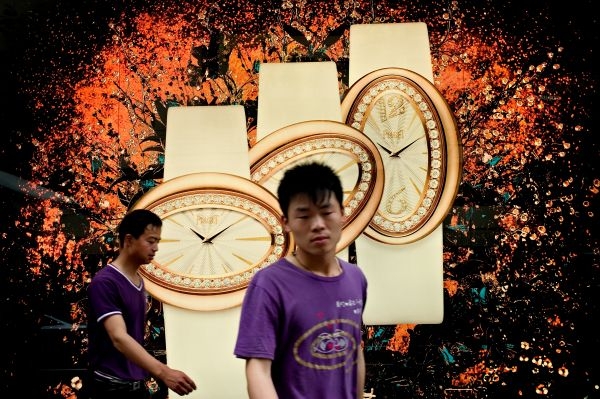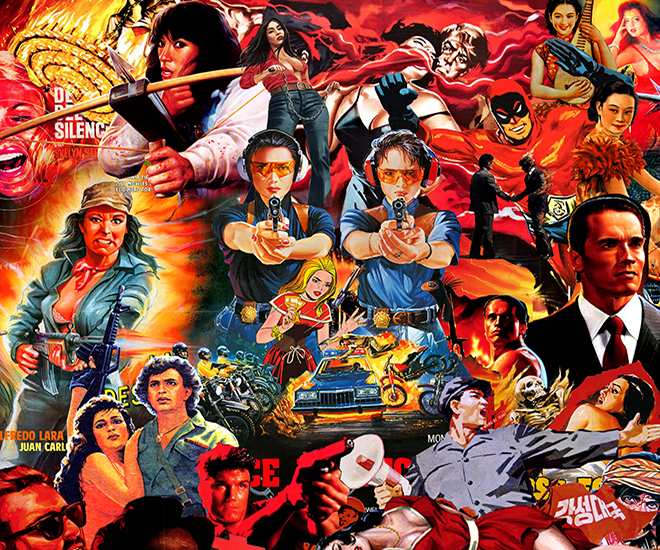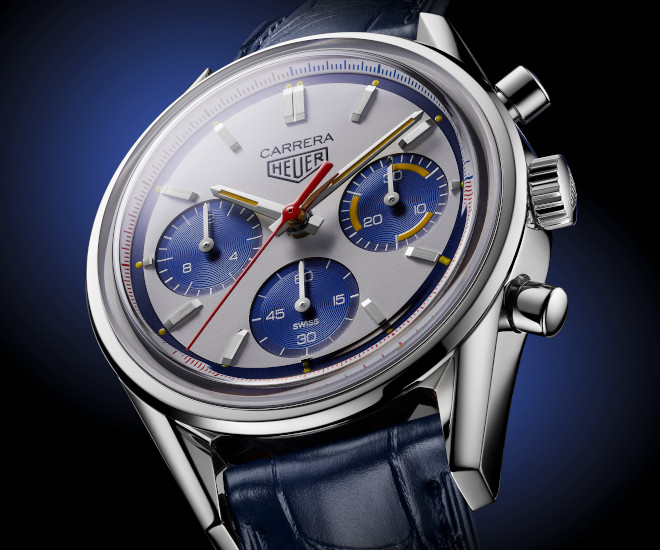Luxury watchmakers follow the money to Asia
A measure of any Asian businessman is the time he keeps and, far more importantly, the watch he wears to mark it. A handshake can be soft or firm but will likely soon be followed by a glance to the wrist to see the watch wrapped around it, especially in China. A heavy slab of […]

A measure of any Asian businessman is the time he keeps and, far more importantly, the watch he wears to mark it.
A handshake can be soft or firm but will likely soon be followed by a glance to the wrist to see the watch wrapped around it, especially in China.
A heavy slab of gold could be a marker that the person is from an inland city. A more expensive, understated watch could be a sign that they’re from the coastal cities of Shanghai, Shenzhen or Beijing.
New money, in Chinese terms, versus old. Around 10 or 15 years ago, the coastal cities would also just go for gold; a chunky watch with a meaty gold strap, says watch enthusiast Harry Qin.
“In Asia probably more than in Europe or North America, a watch is something that can hint the status,” the Shanghai private equity investor, who has a $250,000 collection of 18 timepieces, told AFP.
“But many businessmen just wear a gold Rolex. Especially in less developed cities inland, a gold Rolex is still a very easy way to show other people that you’ve got money.”
Taste for fine watches has developed over time, says Qin, who is just one of the many enthusiasts and serious collectors in Asia that helped make 2010 the second best year in the Swiss watchmaking industry’s history.
Not bad, in the middle of a severe global downturn.
Jean-Daniel Pasche, president of the Federation of the Swiss Watch Industry, estimates export sales for brand new watches for 2010 should be “slightly better” than the 2007 figure of $16.5 billion. Only 2008 was better, at $18 billion.
Over half of those exports went to Asia.
“It is our first market,” he told AFP. “For the first eleven months of 2010, 52 percent of our Swiss watch exports in value went to Asia.
“Asian markets, except Japan, are generally growing faster and stronger than other markets due to the positive economic situation in these countries.”
Sales were up almost 55 percent in mainland China and almost 46 percent in Hong Kong.
The main driver behind the market is simple: hundreds of thousands of Chinese people now have serious money to spend.
According to the Hurun Rich List, the Chinese equivalent of the Forbes or Sunday Times rich lists, there are now 875,000 Chinese worth over a million US dollars. And almost 200 of these are billionaires.
Hurun also compile a list of what brands are favoured by China’s ultra-rich. Patek Philippe is the top luxury watch, followed by Vacheron Constantin, then Cartier.
But Thierry Dupois, the federation’s Asia chief, says the Chinese have always loved watches.
“First and foremost, in China, there is a passion for timekeeping and fine watches that has existed for centuries,” he told AFP.
“In addition to that, in today’s Chinese society, there is of course the interest in watches as a ‘status-symbol’.”
Resellers also had a good year. Christie’s notched up more than $90 million globally in watch sales, the auctioneer’s highest ever figure for watches — $27 million of that figure came from the firm’s Hong Kong auctions.
But Sam Hines, head of watches sales for Christie’s Hong Kong, says Asian buyers are not just showing up at Hong Kong auctions. They are attending auctions all over the world.
“Asian buyers are everywhere now,” he told AFP. “In 2010, the Asian buying in our Christie’s global sales increased 84 percent in value compared to 2009.”
Su Jia Xian, a watch collector who helps run the PuristSPro.com dedicated watch website, says Chinese buyers now have specific preferences.
“At the top end of the market Vacheron Constantin and Blancpain are notably popular. Each derives 50 percent or more of its sales from China,” the Singaporean told AFP.
“In the mass market segment Omega is the leader, but Rolex does well too.
“The taste of the Chinese market is fairly conservative by the standards of the rest of the world, it likes smaller, round watches in yellow or rose gold, sometimes with a matching gold bracelet.”
Omega president Stephen Urquhart says Asian buyers are particularly well informed about the brand and know what they want before they buy, the watchmaker’s links to the James Bond movie franchise also helped boost sales.
“Asia is incredibly important to the brand,” he told AFP. “We’ve been there for more than a century and have a leadership position in almost every Asian market.
“During the financial downturn we were able to gain share in all the markets there and I think that’s a testimony to the strength of the brand in Asia.”
At watch auctioneer Antiquorum’s Hong Kong offices, 452 rare and expensive watches are splayed out across tables and cabinets and stacked in boxes as staff catalogue, price and number them for an auction expected to raise around $4 million.
Top of the range here is a Patek Philippe ‘Celestial’ which tracks the northern hemisphere’s stars as well as tell the time. It might take at least an hour to set but it’s expected to sell for $200,000.
Other watches include a rare 1958 ‘James Bond’ Rolex, expected to raise $65,000 and another Patek Philippe, an 18 carat yellow gold watch which is also worth around $200,000.
The most expensive timepiece Antiquorum has ever sold was a Patek Philippe pocket watch, bought in Geneva in November 2009 by a Taiwanese buyer for $4 million.
“It’s one of the very few investments that you can appreciate every day,” Louisa Lo, Antiquorum Asia’s marketing director, told AFP.
“You can wear it on your wrist, you can show off to your friends, you can appreciate the movements, the intricate details. These are not the kind of enjoyments you can get from, let’s say, a yacht or luxury properties.”
Over half the bidders at the auction on February 26 are expected to be from mainland China, the rest will be from Hong Kong, Taiwan, Singapore, Malaysia and Indonesia.
Mr Qin, the Shanghai private equity investor and watch enthusiast, was in Hong Kong on business but also to have the staff inspect his $13,000 Chopard watch. And to check out the wares, he often bids online for fine watches.
“I buy watches to wear,” he told AFP. “I also like to keep a few in my drawer to admire and to wind. I have loved watches for a long time, it is the mechanical side I like. Their movement. Their sound.
“I hope they will appreciate in value over time but that is not the main reason. I love them. There is something very special about a good watch.”
Source: AFPrelaxnews










